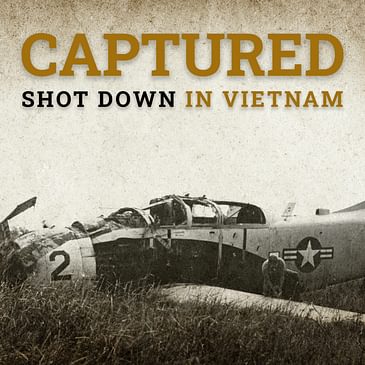Recorded live at the Richard Nixon Presidential Library and Museum's 50th-Anniversary Reunion for former Vietnam War POWs in May 2023, Sid Stockdale, one of Vice Admiral Jim and League of Wives co-founder Sybil Stockdale's four sons, joins Tyler to discuss what he remembers of his parents' critical roles in the Vietnam POW crisis and how their impact reverberates five decades later.
Sid's book, A World Apart: Growing Up Stockdale During Vietnam, is available now.
Learn more about your ad choices. Visit megaphone.fm/adchoices


